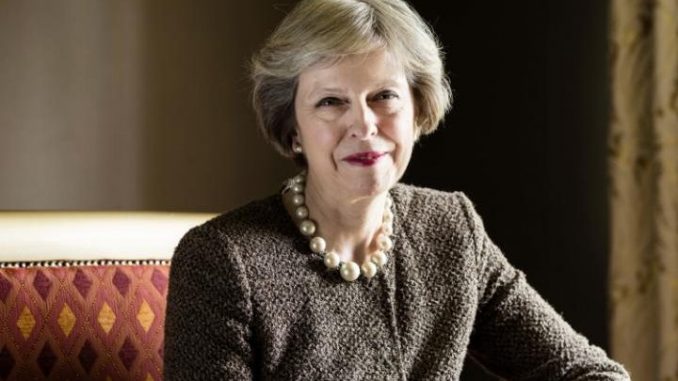
Glasgow, United Kingdom
The 1998 Human Rights Act enshrined into UK law the European Convention on Human Rights (ECHR), a treaty to which Britain has been a signatory since 1951, but which – until the act came into force in 2000 – had no application in UK law.
British Prime Minister, Theresa May, announced plans for a British military opt-out to parts of the ECHR during future conflicts. This is an entirely separate matter from the European Union.
British Defence Secretary Michael Fallon officially announced this change in policy at the October Conservative Party conference. He said such a reform would protect UK troops from “spurious” legal claims of military misconduct. The UK Ministry of Defence has spent over 100 million pounds ($123m) on Iraq-related investigations and compensation cases since 2004.
This move came only weeks after the UK government’s new Justice Secretary Elizabeth Truss reaffirmed a long-held Conservative commitment to scrap the Human Rights Act in favour of a new British Bill of Rights.
Reflections of sovereignty
Before the introduction of the act, individuals in Britain wishing to seek redress for a perceived human rights violation could not make a plea to the European Court of Human Rights at Strasbourg, France, until they had exhausted all legal options at home. The 1998 Human Rights Act made it possible for them to fight for their rights in their own domestic courts giving all those concerned better access to justice.
Those arguing against the benefits of the Human Rights Act, accuse it of infringing upon UK parliamentary sovereignty.
Martin Howe, UK Coalition Government’s Commission, said “I fully support the protection of rights as contained in the European Convention on Human Rights. However, the main problem with the Human Rights Act is not the rights themselves, but the interpretation of those rights by the court in Strasbourg. This country has the longest continuous history of the protection of fundamental rights of any country in the world, and it seems rather strange that we can’t do better on the interpretation and the protection of rights than via this rather strange institution in Strasbourg.”
Howe pointed to Britain’s ban on prisoner voting, which the European Court of Human Rights has repeatedly ruled as unlawful, as “a direct loggerhead conflict between parliament and the Strasbourg court” and typical of the type of issue encountered by the Westminster parliament.
Advocates of the act, however, see little to support the accusation that it has repeatedly attacked the sovereignty of Britain.
Conor Gearty, a professor of human rights law at the London School of Economics’ department of Law said, “What does affect sovereignty is that the UK has signed up to the ECHR, which means that the country has promised to implement [the court’s] decisions …that infringes on sovereignty by choice: it is an international agreement that Britain has made and is just the same as world trade……they have chosen to restrict themselves for the broader general good. That is not an invasion of sovereignty, but a reflection of sovereignty.”
Many UK human rights groups, such as Liberty, campaign to save the Human Rights Act, and Scotland’s first minister, Nicola Sturgeon, vowed to block any UK-wide repeal in the Scottish parliament. Gearty contends that the roots of hostility towards the act began “long before Eurosceptics thought they could get away with leaving the European Union…..this was initially a kind of proxy war on Europe through the Human Rights Act…and the reason it was a ‘proxy war’ was because the Human Rights Act contained within it a European Convention on Human Rights. And the Conservatives who hated Europe got a tremendous head of steam up in the mid-2000s about this, saying how awful it was that we were being ‘run’ by Strasbourg. Even though this court has got nothing to do with the European Union.”
British Bill of Rights
Any repeal of the Human Rights Act and its proposed replacement with a British Bill of Rights is seen by many as a chance to deliver something more libertarian and uniquely better than what is currently on offer.
Luke Gittos, a British solicitor and law editor of the online current affairs magazine Spiked, said that while the Human Rights Act “provides a certain minimal baseline protection for some of our freedom, it doesn’t go nearly far enough in defending our freedom. (Any proposed repeal of the act) provided an opportunity to think outside the human rights parameters about what we want freedom to look like. I think if we did have a Bill of Rights, it should take as its inspiration the American Constitution. A British Bill of Rights – to be really radical and pro-freedom – should say things like, ‘No law will be created that interferes in people’s freedom of speech’. It would be our First Amendment.”
Details outlining government proposals to go ahead with the scheme are not straightforward – though it appears that there will be no move to withdraw from the ECHR itself. Gearty wrote that a British military opt-out to parts of the ECHR was an ominous sign ahead of any repeal of the Human Rights Act. He describes as “politically naive” the suggestion that the Conservative Party would seek to style any British Bill of Rights on the famed United States Constitution.
“Are [libertarian proponents of the Human Rights Act repeal] seriously suggesting that the Conservatives will actually deepen human rights protection? Empower the courts to strike down laws that they will be enacting? Give the courts a remit over [Conservative] austerity? It’s just not in the land of the norm.”





Be the first to comment